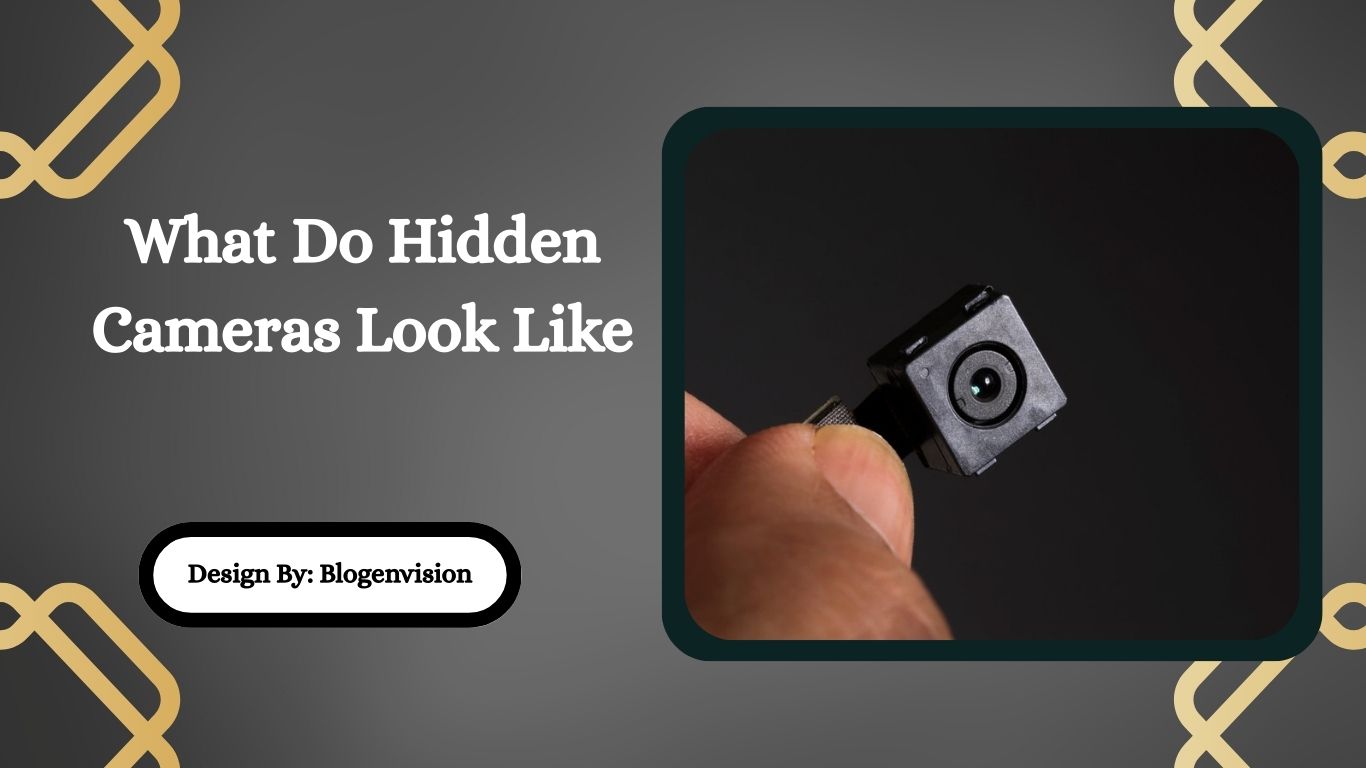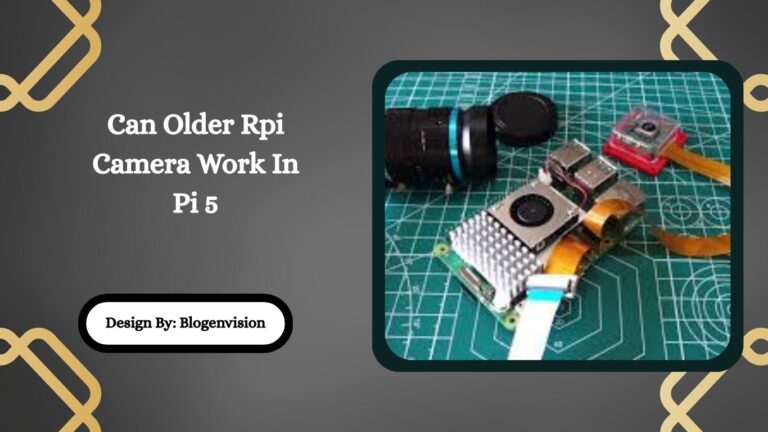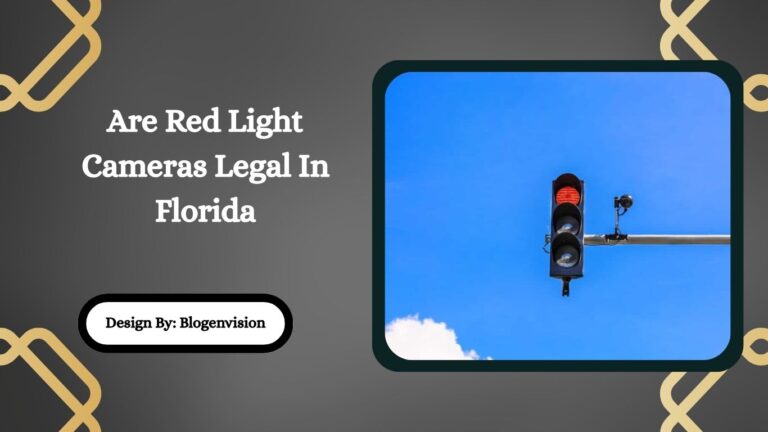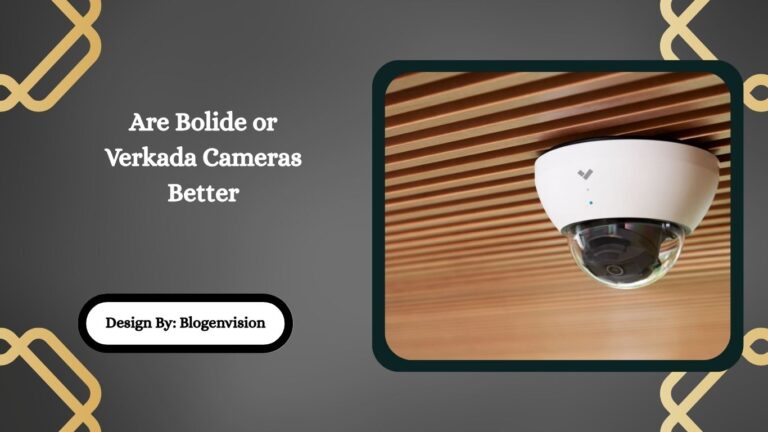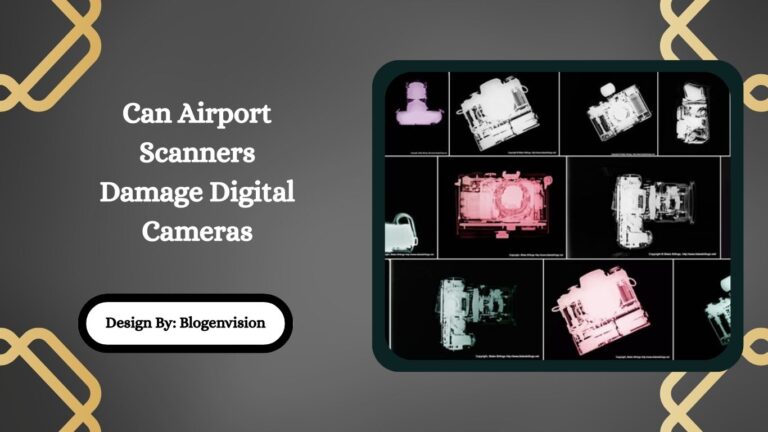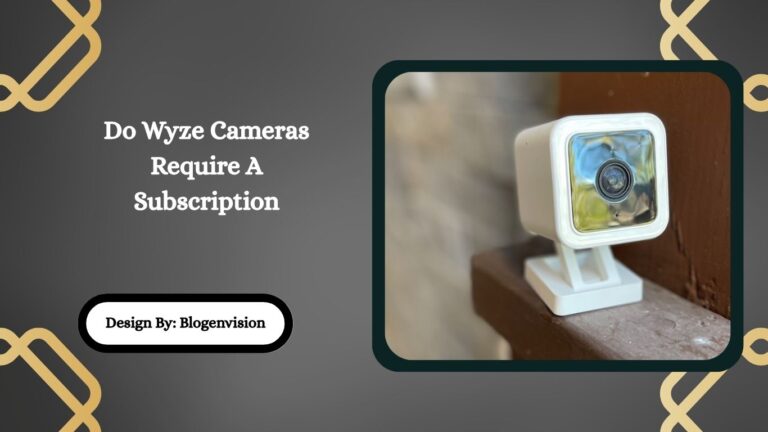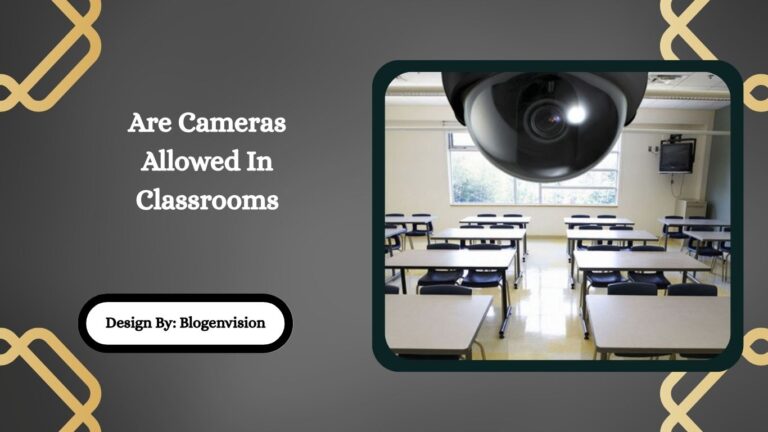What Do Hidden Cameras Look Like – Finding Hidden Spy Cameras!
Hidden cameras can look like everyday objects (clocks, smoke detectors, USB chargers) with tiny lenses. Check for small holes, unusual wires, or blinking lights. Use flashlight tests or phone cameras to spot them in private spaces.
Have you ever worried that someone might be secretly watching you? Hidden cameras are getting smaller and harder to find. They can be hidden in everyday things like clocks, pens, or even wall outlets. If you’ve asked yourself, “What do hidden cameras look like?” or “How can I find hidden cameras?” – this easy guide will show you exactly what to look for.
Everyday Objects That May Hide Cameras
Hidden cameras often look like normal household or office items. Some of the most common disguises include:
- Smoke Detectors A frequent hiding spot because they are mounted on the ceiling and easily overlooked.
- Wall Clocks A simple design can hide a small lens in the clock face.
- Phone Chargers & Power Banks Compact devices with USB ports can secretly record.
- Air Purifiers & Speakers Bulky designs make it easy to place a small camera.
- Mirrors Two way mirrors may hide surveillance devices behind the glass.
If an object seems out of place, especially in hotels, offices, or rental homes, it’s worth checking closely.
Common Hidden Camera Designs (With Pictures in Your Mind):
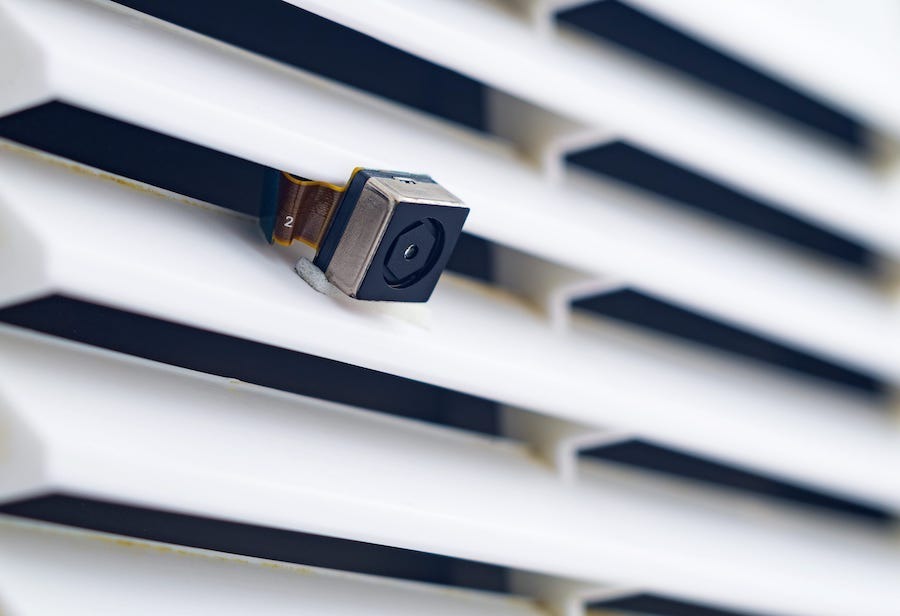
Hidden cameras come in all shapes and sizes. Here are the most popular hiding spots:
Everyday Objects That Might Be Cameras
- Smoke detectors (look for a small black dot in the center)
- Wall clocks (check for tiny holes in the numbers)
- USB chargers (the small holes might hide a camera)
- Stuffed animals (the eyes could be cameras)
- Books on shelves (watch for small lenses in the spine)
- Light bulbs (some can see all around the room)
- Electrical outlets (the small holes might hide a camera)
- Pens (the clip or tip might be a camera)
- Buttons on shirts (very small cameras can hide here)
How to Spot Them?
Look for these clues:
- Small black dots (could be the camera lens)
- Wires that don’t belong
- Tiny blinking lights (some cameras have these)
- Things that look out of place (like a clock in a bathroom)
- Things that seem to always face the same way
Where People Hide Cameras (Check These Spots First)?
Hidden cameras are often placed where people want privacy the most:
In Hotels and Vacation Rentals
- Behind mirrors (especially in bathrooms)
- Inside alarm clocks on bedside tables
- Near the bed (sometimes in the headboard)
- In the TV or cable box
- In the bathroom (look around the shower)
In Homes and Offices
- Inside air vents (easy to hide a small camera)
- Behind picture frames (check for small holes)
- In fake plants or decorations
- In computer monitors or webcams
- On bookshelves (especially facing seating areas)
In Public Places
- ATM machines (to steal your PIN number)
- Dressing rooms (this is illegal but happens)
- Rental cars (check the rearview mirror)
- Public bathrooms (always illegal)
- Elevators (sometimes used for security)
Simple Ways to Detect Hidden Cameras
You don’t need expensive equipment to detect hidden cameras. Here are a few simple tricks:
- Flashlight Test Turn off the lights and shine a flashlight. Lenses may reflect a tiny blue or red dot.
- Smartphone Camera Open your front camera and scan the room. Infrared lights from hidden cameras may show as glowing dots.
- Radio Frequency (RF) Detector Apps Some mobile apps can help scan for suspicious wireless signals.
- Listen for Clicking Sounds Some poorly hidden cameras make faint noises.
Always trust your instincts if something feels unusual, check it out.
Are Hidden Cameras Legal Everywhere?
The legality of hidden cameras depends on where you are.
- Legal Use Businesses may use them in common areas for security (without audio).
- Illegal Use It is generally illegal to place hidden cameras in private spaces such as bathrooms, hotel rooms, or bedrooms.
- Rental Properties & Airbnb Hosts must disclose cameras placed in public areas; hiding them in private rooms is against policy.
Knowing your rights is important if you suspect illegal surveillance.
What to Do If You Find a Hidden Camera?
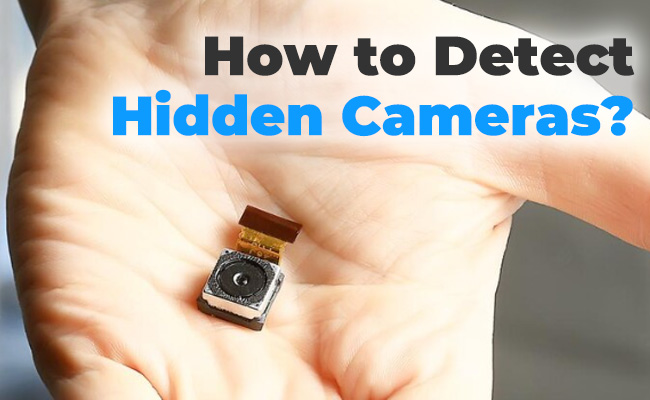
If you find a camera where it shouldn’t be:
- Don’t touch it – You might destroy evidence
- Take pictures – Use your phone to document everything
- Call the police – Secret filming is illegal in most places
- Tell the property owner – If it’s a rental, demand an explanation
- Check the laws – In many places, you can sue for privacy violations
How to Protect Yourself From Hidden Cameras?
Here are easy ways to stay safe:
- When traveling, bring small stickers to cover suspicious spots
- Unplug devices you don’t need (like clocks in hotels)
- Use a webcam cover for your laptop
- Choose well-known hotels with good reviews
- Trust your gut – if something feels wrong, check it
Quick Safety Tips for Travelers
If you travel often, protecting your privacy is essential. Here are some quick tips:
- Inspect the Room Look at smoke detectors, wall clocks, or any device pointing toward beds or showers.
- Cover Suspicious Items If you find an odd device, cover it with a cloth until you confirm.
- Use Your Phone Scan the room with your smartphone camera in the dark.
- Travel With an RF Detector A small investment that can give you peace of mind.
These small steps help keep your privacy safe in hotels, rental homes, or public spaces.
FAQs:
1. Can hidden cameras record sound?
Yes, many do, but audio recording laws are stricter than video. In two-party consent states, secret audio recording is illegal without permission from all parties.
2. Do all spy cameras need power?
Most need power but some battery-operated cameras last months. Wireless models may use Wi-Fi, while others save to SD cards without needing constant power.
3. How long can hidden cameras record?
Depends on storage: Cloud cameras record continuously, while SD card models may loop every few hours/days. Battery cams typically last 1-7 days before recharging.
4. Can infrared cameras be seen by human eyes?
No, but your phone camera might detect IR lights as purple/white dots in darkness. Professional detectors can spot these invisible frequencies.
5. Are nanny cams legal in daycare centers?
Only with staff consent in most areas. Secret recordings may violate wiretapping laws. Some states require posted notices about surveillance cameras.
6. Do hotels legally use hidden cameras?
Never in bathrooms/bedrooms (illegal everywhere). Some use visible security cameras in lobbies/hallways, but hidden cams in guest rooms would violate privacy laws.
7. Can hidden cameras work through walls?
No, but some “spy cameras” use RF signals that might penetrate thin walls. Thermal cameras detect heat through walls but don’t show clear images.
8. How do I block hidden cameras?
Use IR-blocking stickers over suspicious dots, RF signal jammers (where legal), or simply unplug nearby electronics. Physical covers work best for fixed cameras.
Conclusion:
Hidden cameras are becoming smaller and harder to detect, but staying safe starts with knowing what to look for tiny lenses hidden in everyday objects, unusual electronics, or suspicious placements. While some cameras serve legitimate security purposes, unauthorized spying violates privacy laws in most regions.
Quick checks with a flashlight or your phone camera can reveal unwanted surveillance, especially in hotels or unfamiliar environments. Always document and report illegal cameras to authorities. Awareness, vigilance, and smart inspections protect your right to privacy without letting fear override common sense.

